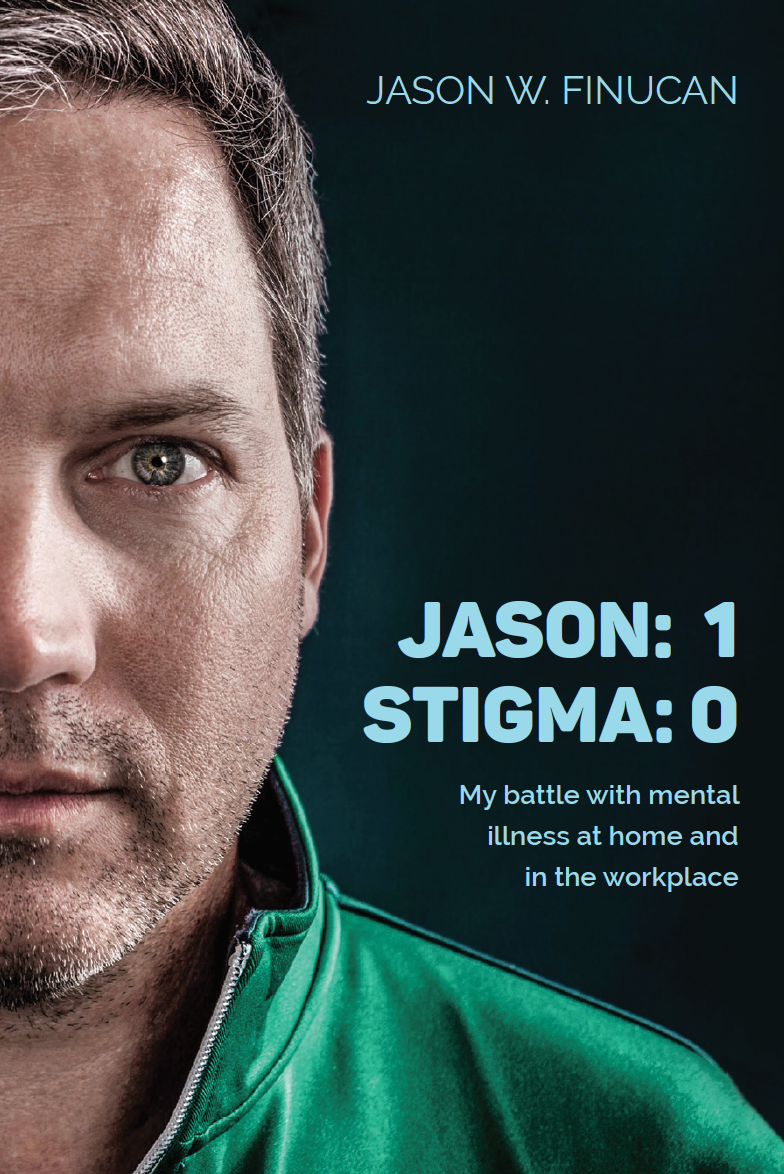Interested in starting your own entrepreneurial journey in wellbeing, but not sure what to expect? Then read up on our interview with Jason Finucan, founder of StigmaZero. Jason is also a book author based in Montreal, Quebec, Canada.
What's your business and who are your customers?
StigmaZero offers unique mental health training services to employers. Our training is built with the best practices in living, virtual, and e-learning training. What makes us unique is the personal perspective of StigmaZero Founder and lead trainer, Jason Finucan, who has faced both major physical and mental illnesses.
Stigma zero offers workplace mental health training your employees to need. Declining mental health and the stigma of mental illness pose an expensive problem that hurts employees and undermines company culture. Our innovative training programs provide employees, managers, HR personnel, and leadership with the skills, knowledge, and tools needed to better respond to these complex workplace challenges. Just like we need training to learn anything new, improving workplace mental health is a skill that needs to be taught and developed within an organization.
Awareness has brought attention to declining mental health in the workplace, but it is not enough. Companies need to take ACTION and provide their employees, managers, HR, and leadership with the proper training to allow them to succeed in improving workplace mental health. Once your workforce receives effective workplace mental health training, all other employee services – such as employee assistance programs, benefits, and wellness initiatives – are far more likely to be utilized. Training will also help you build the right internal strategies to improve your response to mental illness, and ultimately eliminate stigma from your workplace.

Tell us about yourself
I have been a mental health advocate, stigma fighter, and professional speaker for 16 years, and in 2015 I became the founder of StigmaZero as well as the instructor of StigmaZero’s many workplace training programs.
As someone who has experienced both a major physical illness (heart defect leading to open heart surgery in 1988) and a major mental illness (bipolar disorder leading to hospitalization in 2005), I share my personal experiences with impactful storytelling techniques. These moving stories can be found as part of our live, virtual, and online training programs, through my inspirational keynotes, and in my book Jason: 1, Stigma: 0 – My battle with mental illness at home and in the workplace.
I aim to make this difficult topic accessible and consumable, so I blend my stories with rigorous research to mobilize knowledge and perspective. My goal is for everyone to understand this important topic so they are empowered to make a real change and ultimately join in the effort to realize our vision for a future without stigma.
This is a mental health movement – and I want you to be a part of it.
What's your biggest accomplishment as a business owner?
Partnering with large, global companies to train their entire workforce and, ultimately, help them to create a stigma-free workplace where mental health and mental illness are given equal priority to physical health and physical illness. In addition, the clear impact that is seen in audiences of the keynotes and virtual workshops; to see people experience a meaningful change in their understanding of mental illness, and how to better respond to it.
What's one of the hardest things that comes with being a business owner?
In a word, selling. It can be difficult to find new clients to partner with, especially given that what we offer is a relatively new concept to the market.
What are the top tips you'd give to anyone looking to start, run and grow a business today?
- Create a strong online presence (website, LinkedIn, social media, etc.) that clearly articulates what you offer and why it is of value.
- Utilize LinkedIn to make connections and find potential new clients; it is a very powerful tool when used to its' full potential.
- Don't give up. Tweak your offering and your messaging, etc., as you learn more about what the market offers. Be patient. The process can take more time than initially expected, but if what you have to offer is true of value, it will find an audience eventually.
What are some of the things you put in place to maintain a healthy work/life balance?
As a result of the fact that I live with bipolar 1 disorder, maintaining a work-life balance is an absolute must for me. I am careful not to schedule too many high-output days (such as the ones when I deliver a 4-hour training session) in any one week. I also make sure I get the rest needed and leave enough time for my hobbies and other non-work-related activities.
Is there anything else you'd like to share?
This is an over-simplification, however, there appear to be two main types of new businesses: one that fills a screaming need that the market is aware of and looking for; and another that fills a vital need that the market is either unaware of or only just becoming aware of. We fit into the latter, and if your business does, as well, you will need extra patience and hard work to succeed. The reason is you have to first educate the market on the need that you fill, then on your ability to fill that need, and finally on the value of their investment into doing so. It is a long road, but there is still a clear path to success if your offering is strong.
Where can people find you and your business?
Website: https://stigmazero.com/
LinkedIn:
https://www.linkedin.com/company/stigmazero/
https://www.linkedin.com/in/jasonfinucan/
Facebook: https://www.facebook.com/stigmazero/
Twitter: https://twitter.com/GetStigmaZero
If you like what you've read here and have your own story as a solopreneur that you'd like to share then email community@subkit.com, we'd love to feature your journey on these pages.
Feel inspired to start, run or grow your own subscription business? Check out subkit.com and learn how you can turn "one day" into day one



